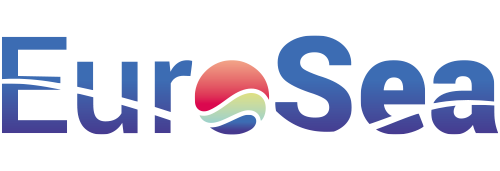
Description
This initiative focuses on strengthening the core competencies of the EuroSea consortium members in three pivotal areas: stakeholder engagement, intellectual property rights management, and effective communication/presentation. By doing so, it aims to bolster the consortium’s ability to execute its projects more effectively and engage with external entities in a more streamlined manner.
Impact During the Project
Expertise Development in Critical Areas:
Traditional State: Before this initiative, consortium members might have had varying levels of expertise in stakeholder engagement, intellectual property rights management, and communication. This variability could have led to inconsistencies in how projects were executed or presented.
Advancement: With targeted training sessions, all members are brought up to a standardized level of proficiency, ensuring consistent quality across the consortium’s endeavours.
Quantifiable Improvement Metrics:
Traditional State: Often, training sessions might be conducted without clear metrics to measure their effectiveness, leading to ambiguity about the real value derived from such sessions.
Advancement: This initiative doesn’t just stop at providing training. It actively measures the effectiveness of these sessions through participant feedback and tracks metrics like the number of sessions organized and attendance. This approach ensures that the trainings are not just theoretical but have tangible benefits.
Impact Post Project
Long-lasting Improvement in Project Execution:
Traditional State: Without standardized training, the effectiveness and efficiency of project execution might vary, depending on the individual team members’ skills and expertise.
Advancement: As consortium members utilize the knowledge gained from these trainings, the overall quality and effectiveness of project execution across the consortium is expected to improve, ensuring more successful outcomes in the long run.
Enhanced External Engagements:
Traditional State: Stakeholder engagements, communication with external entities, and management of intellectual property rights could be areas of potential pitfalls if not handled adeptly.
Advancement: With enhanced skills in these areas, the consortium is better positioned to engage with stakeholders, present its work effectively, and safeguard its intellectual contributions. This could lead to better collaborations, more impactful presentations, and improved protection of the consortium’s intellectual assets.
Advancement over and above State of the Art
This endeavour signifies a progressive approach to capacity building, emphasizing areas pivotal to the consortium’s success. By ensuring that all members have uniform expertise in these domains, the EuroSea consortium is poised to drive its projects with increased effectiveness, better engage with stakeholders, and protect and promote its innovative contributions.
This systematic, feedback-driven approach to training is a tangible step forward from traditional capacity-building methods, promising a higher degree of cohesion and proficiency within the consortium.
Links and References
NA
